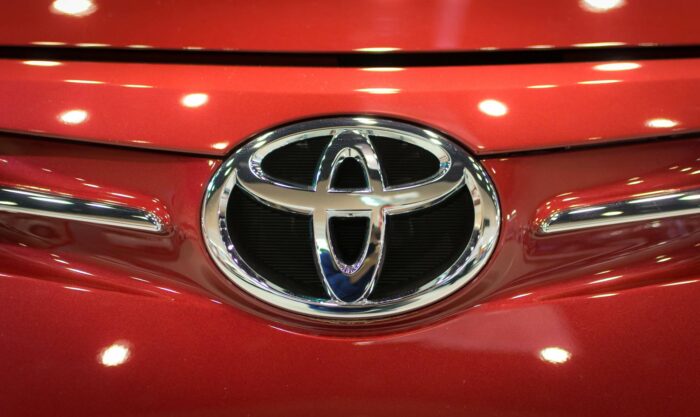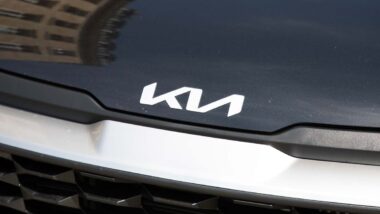Top Class Actions’s website and social media posts use affiliate links. If you make a purchase using such links, we may receive a commission, but it will not result in any additional charges to you. Please review our Affiliate Link Disclosure for more information.

A class action lawsuit alleging Toyota switched to a soy-based covering for wires in its vehicles, which attracted rats and led them to eat through the wires, can proceed, a California federal judge ruled on May 11.
U.S. District Judge Cormac J. Carney said in the ruling that the court was bound by the Ninth Circuit’s previous findings in the case, which ruled that expressed warranty claims could progress, but California Unfair Competition Law claims remained dismissed, according to Law360.
Carney added that under the law of the case doctrine, a district court was prevented from reconsidering an issue that had been decided by the same or a higher court.
“To now dismiss plaintiffs’ implied warranty claims would contravene the circuit’s clear mandate and relitigate issues the Ninth Circuit decided either expressly or by necessary implication,” Carney wrote, adding it would be “improper” to allow the unfair competition claim to proceed after its dismissal by the Ninth Circuit.
The class action lawsuit was filed by 21 people whose vehicles were damaged by rats after Toyota switched to the soybean-based coating, and who allege the company refused to make repairs.
The case has been ongoing for five years, and in 2018 it was tossed out by U.S. District Court Judge Andrew J. Guilford, who said that the coating was a design defect not covered by express warranty, and the implied warranty could not be made to cover damage caused by “those pesky rats,” Law360 reports.
In August 2020, the Ninth Circuit revived the case saying that Guilford misidentified the rats as the problem, when the class action alleged that it was the soybean-based wired coating.
Jerusalem F. Beligan of Bisnar Chase LLP and Benjamin F. Johns of Chimicles Schwartz Kriner & Donaldson-Smith LLP, lawyers representing the group, told Law360 in a statement that they were pleased with the court’s decision, “which we view as being consistent with what the Ninth Circuit held when it revived some of our claims last year.”
The case isn’t the only class action lawsuit Toyota is facing. In March, a consumer filed a class action lawsuit against the company alleging that its popular SUV, the RAV4, was equipped with defective batteries for model years 2013 through 2018.
Have you ever had rats eat wiring inside your vehicle? Let us know in the comments section!
The plaintiffs are represented by Brian S. Kabateck and Anastasia K. Mazzella of Kabateck LLP; Brian D. Chase and Jerusalem F. Beligan of Bisnar Chase LLP; Benjamin F. Johns, Samantha E. Holbrook and Alex M. Kashurba of Chimicles Schwartz Kriner & Donaldson-Smith LLP; Robert B. Brown III of Pennekamp Law PA; and Scott C. Harris of Whitfield Bryson LLP.
Toyota is represented by Amir M. Nassihi, M. Kevin Underhill and Samantha Burnett of Shook Hardy & Bacon LLP.
The Toyota Soybean Wiring Class Action Lawsuit is Heber, et al. v. Toyota Motor Sales USA Inc. et al., Case No. 8:16-cv-01525, in the U.S. District Court for the Central District of California.
Don’t Miss Out!
Check out our list of Class Action Lawsuits and Class Action Settlements you may qualify to join!
Read About More Class Action Lawsuits & Class Action Settlements:
- Toyota Class Action Lawsuit Alleges an Echo Defect in Hands-Free Calls
- Vehicle Safety Defect Class Action Lawsuit Investigation
- Chevrolet Car Dealership Sued for Sending Pre-Recorded Sales Messages, Class Action Lawsuit Claims
- Do You Qualify: Auto Dealer Service Overcharge Class Action Lawsuit Investigation















520 thoughts onToyota Class Action Claiming Soy-Coated Wiring Attracts Vehicle-Damaging Rats Can Proceed
My 2008 Toyota Highlander was still reliably operating perfectly when it suddenly stopped working on 12/8/2023 due to rodent damage under the hood. The repairs were too costly and I had to junk the car. The negligence of car manufacturers continuing to produce cars with this known problems from soy based materials is unlawful. I would be interested in talking to someone about representation.
I’m about to spend $1500-2000 to replace the knock sensor harness for the second time. The soy based wires should be recalled and replaced free of charge.
I just bought a 2023 Toyota RAV4 November 15, 2023. On 3/4/2024 a hybrid malfunction and check engine warning lights. Checked under the hood and found that squirrles chewed wires and a softball size chunk chewed out of the foam engine cover. I previously had a 2010 Toyota RAV4 at the same location for 13 years with no issues. I would prefer to return the $40K car and get my old car back.
I live in Grants Pass,OR and have spent nearly $1500 on wire repairs in the past 3yrs due to rodents.This is the first I’ve read about the soy issue after hearing about it from a friend.I would be very interested in discussing representation.
My 2018 Toyota Tundra has $12000.00 damage from mice. Wires, airbag, underneath carpet just everywhere. The truck was torn apart to inspect the damage. Now there is a 6 week wait for an airbag. This is crazy. Insurance will pay but that is not the point. This shouldn’t be happening.